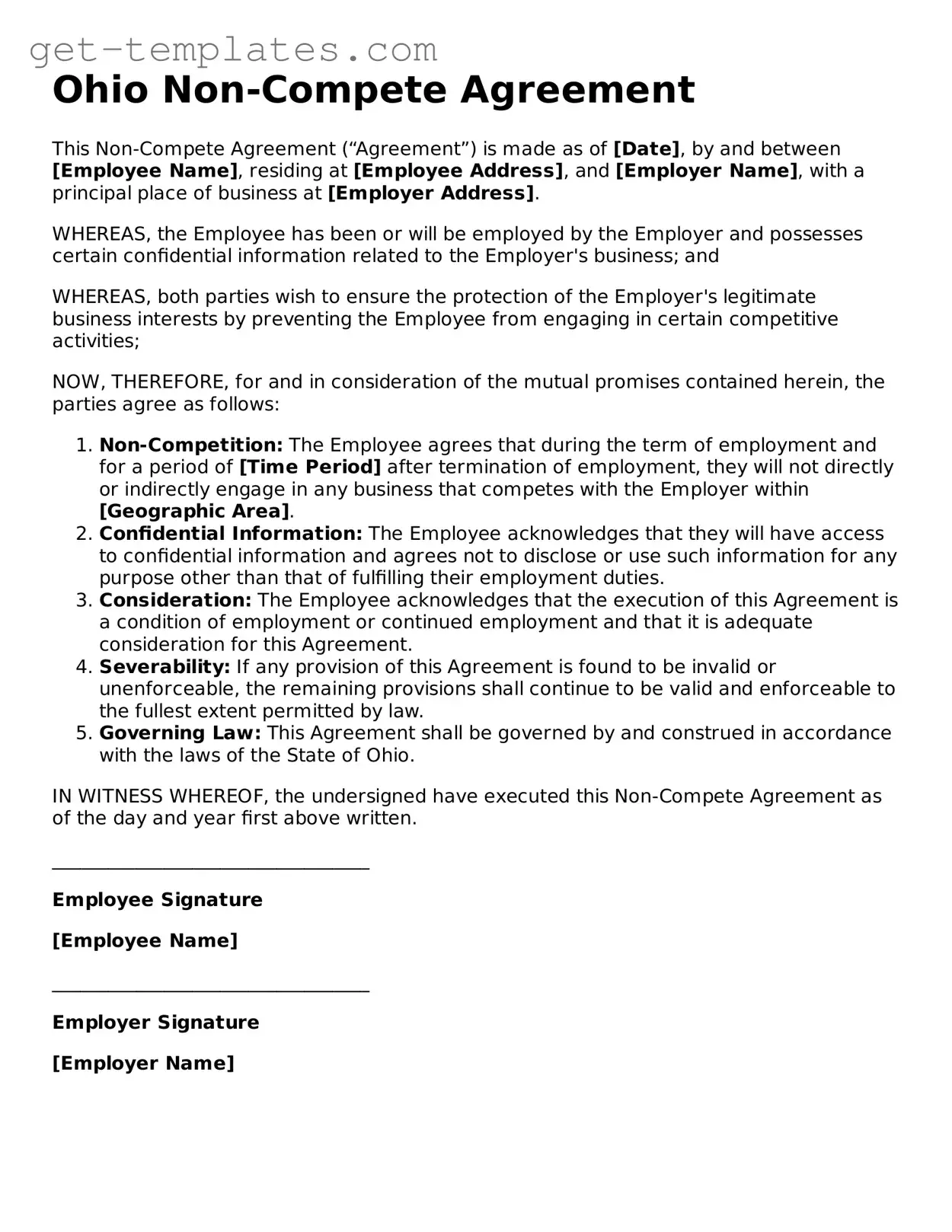Attorney-Approved Non-compete Agreement Document for Ohio
A Non-compete Agreement is a legal contract between an employer and an employee that restricts the employee from working for competitors or starting a competing business for a specified period after leaving the company. In Ohio, this agreement aims to protect business interests while balancing the rights of employees. Understanding the key elements of this form is essential for both employers and employees navigating their professional landscape.
Get Document Online

Attorney-Approved Non-compete Agreement Document for Ohio
Get Document Online
You’re halfway through — finish the form
Finish Non-compete Agreement online — edit, save, download made easy.
Get Document Online
or
⇓ PDF Form
